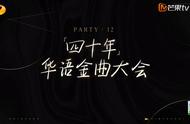Also, as well 还是 too怎么选择?
Also, as well 和 too 都是副词,意思‘也’。
Also
Also在写作中常用,但在口语中不常用。也在句子中占据不同的位置。
我们在前面的位置使用also来强调后面的内容或添加一个新的观点或话题:
It’s very humid. Also, you can easily get sunburnt.
[电话交谈]
OK, I’ll phone you next week and we can discuss it then. Also, we need to decide who will be going to Singapore.
also通常用于副词的中间位置,在主语和主要动词之间,或在情态动词或第一个助动词之后,或在be之后。在这种情况下,also的意思通常与前面的整个子句相连:
She works very hard but she also goes to the gym every week.
I’ve been working in the garden this week, and I’ve also been reading a lot.
在结束位置,也通常连接两个短语。我们在结尾位置用as well和too代替also,尤其是在讲话中:
She contacted him in the office but he didn’t answer the phone. His mobile phone was silent also. (或 His mobile phone was silent too. 或 … was silent as well.)
As well口语:
As well在口语中比在写作中更常见,在口语中比also更常见。
As well几乎总是出现在末端位置:
[在餐馆,客户A正向服务员B点菜]
A:
I’ll have steak please.
B:
Yes.
A:
And I’ll have the mixed vegetables as well.
Too我们通常把too放在结束位置:
Gill’s having chicken. I’ll probably have chicken too.
She looks really tired and she must be really hungry too.
Too可以紧跟在主语后面,如果它直接指向主语的话。它通常不出现在情态动词或助动词之后。我们有时也在前后加逗号:
I too thought she looked unwell.
We, too, have been very pleased to receive the prize on her behalf.
Not: We have too been very pleased …
Too尤其常见于对固定表达的回答中,如给予良好的祝愿,以及由单一宾语代词组成的回答中:
A:
Enjoy the play.
B:
Thanks. You enjoy your evening too. (胜过You enjoy your evening as well. 或 You also enjoy your evening.)
A:
I need to go to the gym.
B:
Yeah, me too. (好于Yeah, me also. 或 Yeah, me as well.)
在祈使句中,as well和too通常优先于also:
[顾客在邮局购买一、二级邮票]
Give me a book of ten first and a book of ten second as well then please. (优于… and a book of ten second also then please.)
与否定相连We use either not also, as well or too to connect two negative ideas:
我们用either(而不是also), as well或too来连接两个否定的概念:
Bill’s not here. I don’t think Dave is either, is he?
Not: I don’t think Dave is also/as well/too.
A:
That’s not in paperback yet. It’s not been in any book clubs either, has it?
B:
No.
Not: It’s not been in any book clubs also/as well/too, has it?











